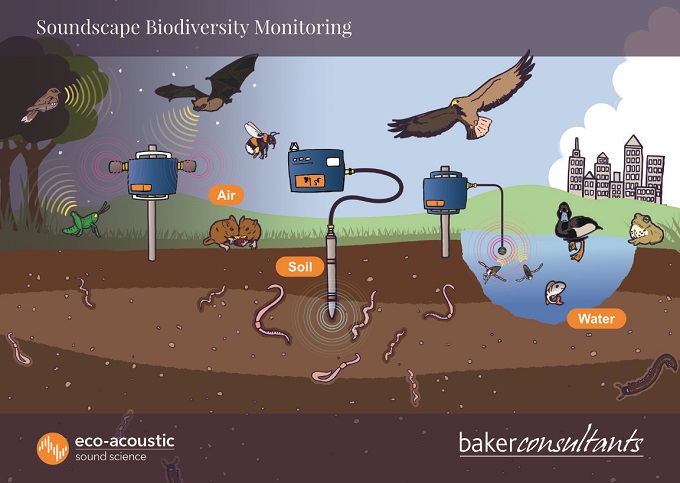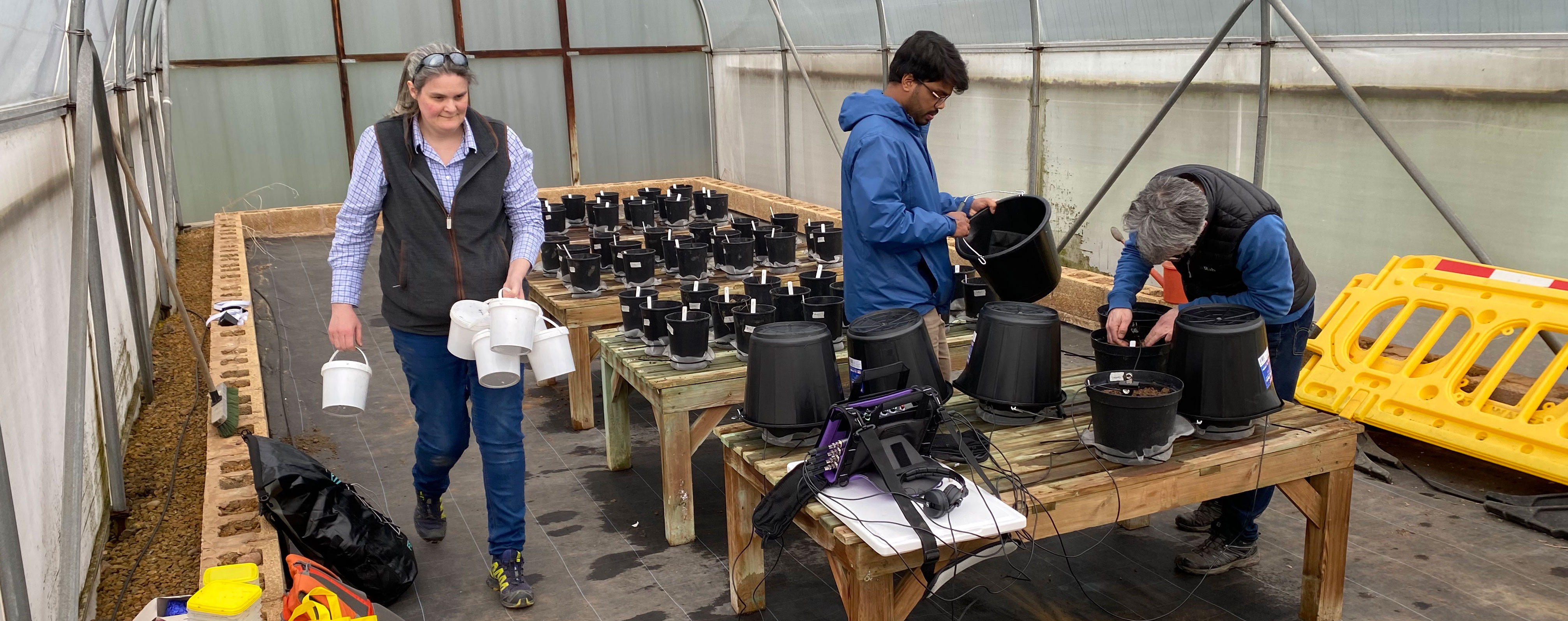The study – the first of its kind – is a collaboration between soil scientists at the University of Warwick Crop Centre and Baker Consultants Ltd, experts in a technique called ecoacoustics. It is hoped that their work will help develop a system to monitor the activity of earthworms and other soil fauna, to help farmers grow crops more efficiently.
Soil health is fundamental to sustainable crop production and global food security. Earthworms influence soil health via their feeding and burrowing activities, and a high abundance can improve plant productivity. They are also important source of prey for native wildlife.

Pilot studies have shown it is possible to record acoustics of organisms within the soil. This technique will have many benefits for soil monitoring, as measurements can be generated in minutes using a probe. Farmers would place probes within the soil and record the soundscape; this would then be analysed by computers using algorithms that compare the output to a sound library – the results used to assess biodiversity.
Farmers currently measure earthworm populations by digging and sorting large amounts of soil by hand. It is very laborious; a few spadefuls of soil can take over an hour to measure. Farmers across the UK, and the world, have repeatedly expressed their need for a better system for measuring earthworm communities.
The DEFRA-funded study will also be using advanced artificial intelligence (AI) to deliver rapid sample analysis and reporting, as well as developing a Soil Acoustic Meter for which a patent is currently pending.

Dr Jacqueline Stroud, from the University of Warwick’s Crop Centre, said: “Soil is the most biodiverse habitat on the planet and it makes sense to use technology to help us understand these complex ecosystems. Earthworms make rasping sounds and rhythmic scrunching as they move through the soil which we can use to detect them. This technology is non-invasive and quick; it will help people to act more quickly and get more done regarding soil health.”
‘A noisy soil is a healthy soil’Andrew Baker, founder and managing director of Baker Consultants, said: “We have already begun work on this project and all the data we have collected so far supports our basic hypothesis that a noisy soil is a healthy soil. This grant will allow us to deepen the scientific evidence behind our approach and to develop a cutting-edge soil monitoring service that promises to be a major disrupter in the soil testing market. We anticipate that this technique can be used worldwide anywhere where we are interested in soil health.”

 English
English French
French



.png)


.png)





